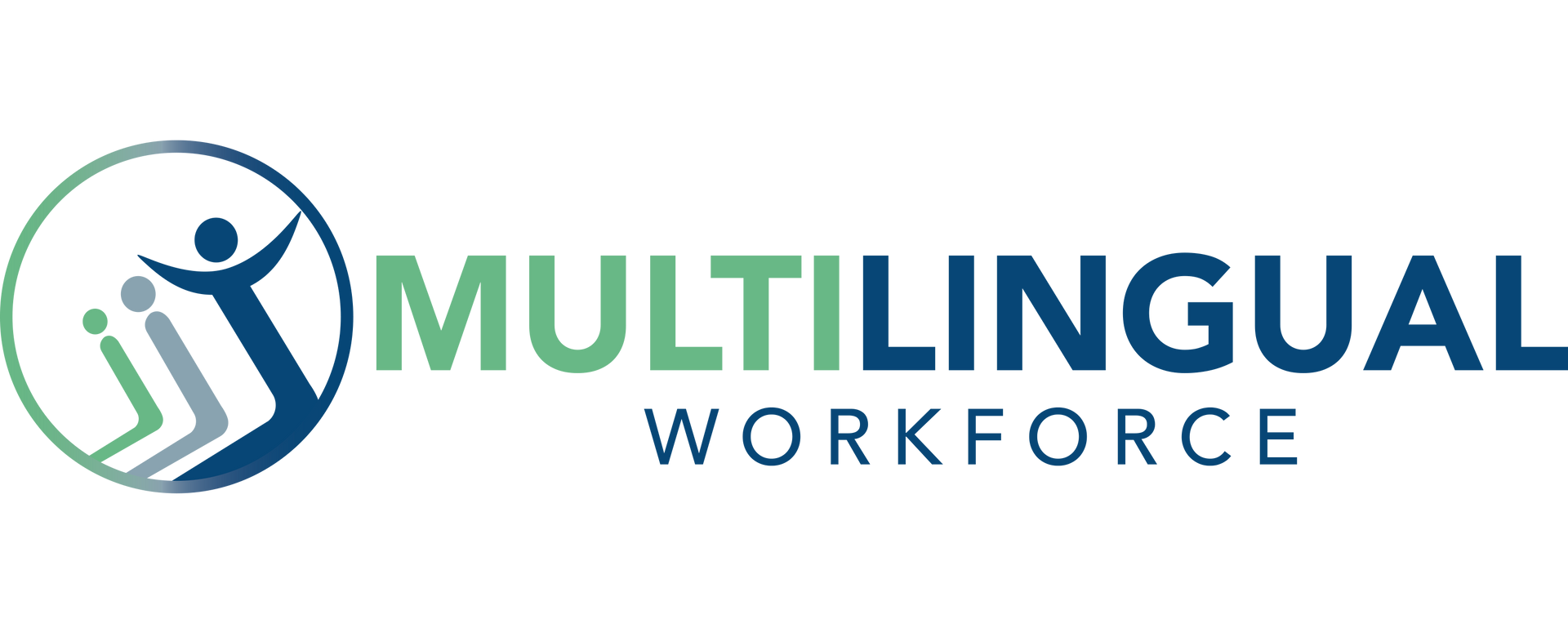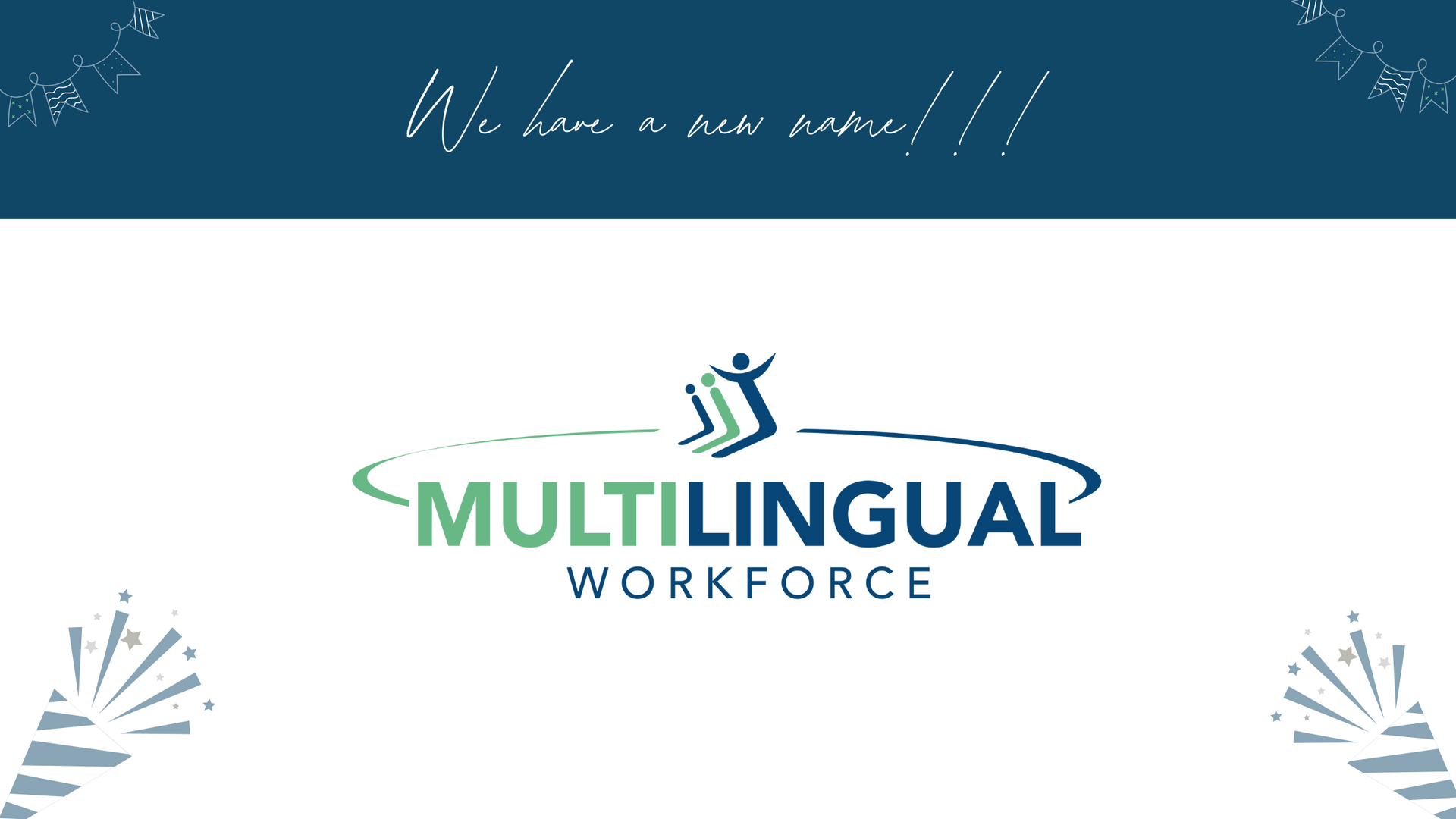Rethinking Your Employer Brand in a Post-Pandemic World
Laurie Dawkins • July 26, 2021
What is an Employer Brand?
The Society for Human Resource Management (SHRM) defines Employer Brand
as an essential part of the Employee Value Proposition.
It is essentially what the organization communicates as its identity to both potential and current employees. It encompasses an organization’s mission, values, culture, and personality. A positive employer brand communicates that the organization is a good employer and a great place to work. Employer brand affects recruitment of new employees, retention and engagement of current employees, and the overall perception of the organization in the market.
A company’s Employer Brand communicates why the company is an attractive place to work. It also sets you apart from other companies competing for the same talent.
This article will look at how Covid-19 has affected job seekers’ outlook on employers and how employers can gain a competitive advantage by rethinking their Employer Brand.
“As workers re-enter the workforce, they are looking for opportunities that will match their lifestyles and plans for now and in the future." Mathieu Stevenson, CEO of Snagajob, a Richmond, Va.-based platform for finding and hiring for hourly work.
After spending months at home during a crisis, workers have never been more in touch with what they want from their work and workplace. They have new and increased expectations of their employers and workplaces. Perspective has come for many due to the severity of the crisis, the Covid-19 death toll, which now stands at more than 4 million people across the globe and more than 600,000 in the U.S. alone. Many employees either were sick themselves or had loved ones who were ill.
“We’re evaluating our lifestyle choices, our values around how we spend our time and what we want to be contributing to the world,” Jan van der Hoop, President at Fit First Technologies said. “And the truth is that there’s a huge segment of the population that has been going to work for jobs that they can do, but they aren’t excited about. Right now, there’s an opportunity for them to level set around what am I prepared to put up with even in the course of the day to day work? I think what you’ve got now is a call to action to employers to fix jobs that have been chronically unsatisfying.”
Your Employee Value Proposition (EVP) is at the core of your Employer Brand
What are the two sides of the Employee Value Proposition (EVP)?
1. The value (skills, experience, personality etc.) a candidate offers an employer.
2. The value (growth opportunities, culture, benefits, etc.) an employer offers new and existing employees.
Companies have been asked to rethink both the purpose of work and how and where work gets done. Values and priorities when making career moves have shifted.
Rethinking your Employee Value Proposition
Of course, meaningful work, career development, engaged and supportive leadership, and competitive salary and benefits remain key. But in this social, economic, and health crisis, other things have come to the forefront.
Here are some elements worth considering when refining your EVP:
Employee Well-Being
Employee well-being covers everything from mental health to work-life balance to stress management to non-traditional forms of wellness, like mindfulness or financial wellbeing. Think education on economic well-being. Think clear guidelines for your employees about when the workday ends. Think monthly “wellness days” that the entire team has off for self-care. If your company is offering these things during the pandemic, don’t retract them on the other side. Actively incorporate them into your EVP—forefront them in your messaging. Talent will be looking to see if you’ll prioritize employee health and well-being over the long-term.
Stability
It’s an understatement to say that COVID has created an environment of uncertainty. Talent will not forget the anxiety this pandemic has brought on, and the stability a company has to offer will likely be a fundamental element of career decisions for decades to come.
If you can demonstrate company stability as part of your EVP, assuring candidates that they’re not stepping onto a sinking ship—whether by revealing more about growth plans or company financials—do so.
Flexibility
Talent wants flexibility, and we’ve seen how possible it is. “That’s not how we operate” may not hold up as an argument anymore. 73% of companies who have reiterated on their EVP in light of COVID say their value propositions now include providing flexibility with remote work hours.
It’s important to remember that flexibility doesn’t necessarily look like it does in all industries where remote work is more feasible, and hourly timeframes are less rigid. Flexible scheduling for manufacturers might require creative thinking, but a few common approaches include task-oriented work schedules, breaking up traditional 8-hour shifts, or staggered shift work.
Corporate Social Responsibility, Mission, and Values
Philanthropy, ethics, and a sense of purpose fall under this category: the emotional or “heart element” of your EVP. As the boundary between our work lives and personal lives has shrunk, it’s as essential as ever for workers to feel aligned with the mission and purpose of the companies they work for—your (and their) “why.”
Diversity and Inclusion
Nearly 60% of companies that revised their EVPs this year emphasized diversity, inclusion, and belonging initiatives. Do you have diversity initiatives in place to bring underrepresented talent into your company? Are underrepresented employees being promoted at the same rate as their majority peers? Whatever platforms you are sincerely using to give light to social justice issues, make those efforts visible whenever possible.
For too long, a sense of complacency has set in among many businesses who built their employer brands on the assumption that employees either will want to work for them because of their reputation or, in some cases, because they have no other choice.
While the pandemic has closed doors, it has also opened new windows of opportunity, leaving workers more engaged and energized about their careers than in previous years. The future may be unknown, but it holds the chance for people to grow, rethink their priorities, and reflect on what they want their professional lives to look like in the long term.
Consider rethinking your Employer Brand to attract and retain those looking for new career opportunities, flexibility, and stability to grow and increase their value can make them more viable for the future, which may help employees stay longer.
At Workplace Talent Solutions, we help HR professionals solve the challenges they face with their entry-level employees. If you want to learn more about how you can make your entry-level employees more viable for the future, or if you could use some help identifying some strategies and resources to sort out whatever is keeping you up at night; we want to help! Schedule a free, 30-minute “Strategy Call” with us at this link: https://calendly.com/workplacetalentsolutions/30min.

If you lead a diverse team in the U.S., you may have noticed that communication styles can vary widely. Some employees may seem overly explicit in their explanations, while others appear vague or hesitant. These differences aren’t always just personality quirks—they can stem from deeply ingrained cultural norms about how communication should work.

In today’s global workplace, language isn’t just a tool for communication—it’s the bridge that connects teams, drives innovation, and ensures everyone is on the same page. But for many new hires, especially those coming from diverse cultures/backgrounds, mastering English can be a daunting challenge. Not only this, but it can be equally daunting for companies to understand how to hire employees who don’t speak English well. So, how can companies ensure all of their employees thrive in an English-centric environment? It starts with understanding the power of language training and making it a cornerstone of your onboarding process. English isn’t just nice to have—it’s a game-changer for both your hires and your business. Helping employees improve their English doesn’t have to only happen in a formal English class environment. In fact, providing opportunities for employees to build their English language skills should become a core part of your company culture. One way to get started is to teach some basic English words during an employee’s first few days. When completing new hire training with individuals who don’t speak English, many trainers and HR staff members resort to translating all the information. However, while translation can help communicate the concepts, it’s also equally important for employees to learn at least some English words as well. Consider this example. One of our clients decided to hire a non-English speaking individual for the janitorial department. To ensure that the employee grasped the training content, they had the new hire training translated into his native language. As a result, the employee felt confident in the expectations and methods of his basic tasks. One day, he was mopping the floors in a long hallway after hours. Another employee started walking down the hallway at the other end, deep in thought, and unaware of the “wet floor” safety sign. The new hire, who didn’t speak English, didn’t know how to call out and tell the other employee to be careful and that the floor was wet. While he had been trained well on how to properly mop the floors and ensure safety on wet floors, his lack of English language still created a significant safety risk for his coworker. This almost caused an accident in which one or both employees could have been hurt, fallen, etc. Because the proper English words were not taught, this employee probably had other similar instances in which it became increasingly difficult to communicate in a fast-paced environment. Even though the concepts were understood, it didn’t eliminate the need for English language in the workplace environment. When companies start teaching key English words for the workplace early in the new hire process, they will see several benefits, both for companies and their employees. Benefits of Teaching English Words to New Hires Improved Communication: English is the primary language used in the American workplace, so it’s important to give your employees opportunities to practice the language. When this is provided in their new hire training, employees are given a head start in gaining confidence in workplace English, and oftentimes, it leads to less misunderstandings and errors. This impact can be seen in the early stages of the employee’s career, but also has long-term effects on their ability to communicate within the company. Improved communication leads to better team collaboration as employees are able to more accurately communicate concerns, instructions, accidents, etc. Increased Productivity: As a result of improved communication between employees, companies who teach English words to their new hires and seasoned employees see increased productivity throughout the workplace. Communication becomes more streamlined, which allows for company processes to work more efficiently and in a timely manner. When companies invest in training for new hires to learn English at the beginning of their tenure at the company, they are also able to save time spent teaching these same words in the plant floor, workroom, warehouse, yard, etc. Enhanced Workplace Safety: According to research collected by OSHA, workplace accidents resulting from a language barrier in the workplace make up about 25% of reported accidents. When employees are able to communicate effectively in English, they are able to more quickly address these accidents, whether by reporting them or working with a colleague to fix the problem. This also helps to reduce liability for the company and to lessen the number of potential accidents that could occur. Workplace safety is a big concern for many of the companies we’ve worked with who struggle with this language barrier, and it’s an important issue to consider when beginning to train your new hire employees. Stronger Employee Retention: When you invest in your employees and their language learning, this shows a commitment to employee growth that benefits both parties. Employees who receive this type of support in the workplace are often seen to be more loyal to their company, which also helps to decrease turnover. Not only this, but many immigrant or refugee employees also come to the country with other working-class family members. We’ve seen many companies hire one family member, which naturally turns into opportunities to hire their family members or friends to fill other open positions when the company treats the original employee well. By proactively addressing the language barrier early, companies are able to stop miscommunication, workplace accidents, and increased turnover before it becomes a problem. Employees are also given better footing from which they can begin their new position, setting them up for success as they continue to learn the language. Think back to the employee in the janitorial position who couldn’t call out a warning in English. By including in the new hire training some basic safety phrases for communicating caution (such as, “Whatch out!,” “Be careful!”) the company would have better prepared him to communicate with coworkers when he was in the middle of a task that required caution from others, such as mopping the floor, or cleaning up a spill. So, what are some other ways we can improve our English training to new hires knowing about these benefits and risks? Strategies to Incorporate Language Learning During Onboarding Incorporating this English language learning into your new hire training can be done seamlessly with a little time and effort up front. Here are a few strategies we recommend and have seen work well in the companies we’ve worked with. Give new hires a list of the most common tools/materials/machines/duties that will be used in their job. On this list, include a photo and the English word, and go over these words with new hires and give them a copy to take with them. Start with 10-15 words that are tailored to the individual’s role, and add more words as needed. This is a tool you can continue to use and refer to even after the employee has been working with the company for a few months. (You can find a free template here to help you create this tool for your employees!) Include English words on your PPT slides . Even just 1-2 words in large letters on the slides you typically use can be a huge help to language learners. They will be able to begin associating these words with the concepts you are explaining. If you do a portion of the training in Spanish or have it translated, you should still be teaching a key English word along with these translated concepts. While providing some of the training in the employees’ native languages can be helpful, it shouldn’t be relied upon for complete understanding. Translations can be inaccurate, and over-translating does not allow for better communication in English in the future. Avoid overloading your employees with translation, but instead, use their native language as a tool in order to help them learn English alongside the words they’re used to seeing. Pair new hires with a mentor, peer or coach who can help them learn the English words they need for the job . Encouraging interaction in this way allows for a safe place for employees to practice their English in a more interactive manner than some new hire training might allow. This is a great way companies can encourage their employees to gain confidence speaking and listening in English. Offer a new hire English class . This class environment allows for another safe place for employees to gain confidence using the English they are learning. The classes can be provided by an outside company (like Multilingual Workforce) or in our unique train-the-trainer format , where your internal team can deliver the material in a more flexible set up. We’ve worked with many companies who are looking to improve their onboarding processes to better support their non-English speaking employees! If you’d like to learn more about our services, or schedule a free consultation with us, send us a message! We look forward to hearing from you!

While diversity is valuable and creates a strong workforce, it can also cause a breakdown in communication if employees aren’t trained in how to relate to other cultures and other viewpoints. Being aware of the different cultures present in your company's workforce is essential for creating an inclusive and respectful work environment. This month, we dive into shame or honor-based cultures, their common characteristics, and how to make communication accommodations in the workplace.

Comparing Two Supervisors: Language Barriers and Workplace Culture Picture this: At ABC Company, a portion of their workforce speaks Spanish as their first language, and has limited ability to speak or understand English. In a tour of their facility, you come across two different supervisors who are handling the language barrier in two different ways. Which of these two supervisors do you think positively impacted their company’s workplace culture, and which do you think had a negative impact? Supervisor A: Half of the employees this supervisor oversees only speak English, while the other half speak only Spanish. To keep things running efficiently, this supervisor split the group and has one production line for each language group. With this setup, the two groups of employees rarely interact with each other and can just talk to themselves in their own language. Supervisor A has limited Spanish-speaking abilities, so when he needs to communicate instructions to the Spanish-speaking employees, he asks a bilingual colleague to come and share the instructions with the employees. Overall, the employees seem guarded and uncertain. The ESL employees seem hesitant to approach their supervisor, and little talking or collaboration is happening in the room. Supervisor B: Supervisor B also oversees employees who speak English primarily and others who speak Spanish. Instead of separating them into production lines that speak the same language, this supervisor decided to keep all employees mixed together. They invested some time in teaching everyone some hand signals to communicate across the language barrier. Even though they speak different languages, as supervisor B looks around the room, they see employees interacting with each other through their hand signals, and teaching each other basic words in the other language. Some English-speaking employees are learning Spanish words, and some Spanish-speaking employees are practicing English words. There is a sense of camaraderie and fun, and employees seem at ease when working with others from a different culture. Based on these descriptions, which room might have higher employee engagement and retention? Which supervisor is positively impacting ABC’s company culture? Which team is poised for employee growth and improvement? How Over-Reliance on Translation Can Undermine Company Culture The Limits of Translation Apps and Services When translation is the main tool in bridging language barriers, supervisors, employees, and company culture can become dependent on it. Learning to communicate across a language barrier is a learned skill, and requires the ability to gather meaning from what someone is saying based on their body language, hand motions, and other nonverbal signals. As employees practice this, both native English speakers and non-native English speakers improve their communication skills, and become better at interacting and communicating with those from other cultures. However, if translation through an app or a person is what is relied upon for communication, native English speakers and non-native English speakers don’t have the opportunity to improve at communicating with each other and those from different cultures. Barriers to Employee Advancement and Organizational Growth Relying on and overusing translation limits the growth of a company. People who don’t speak English are not able to advance in the company because of the language barrier. Even if they bring valuable skills from their education, training, or past job experience from their home country, they can’t move into other roles or leadership positions because of the inability to communicate with higher-ups, who likely only speak English. If a company does not figure out a way to bridge that language barrier, it runs the risk of limiting itself to a certain way of operating. Strategies to Foster Communication Across Language Barriers There are many ways a company can help bridge the language barrier by providing opportunities for employees to interact and connect: Food : Provide opportunities for employees to bring in food from their home countries and share it with one another. Holidays and Celebrations: Related to food, celebrate holidays or things related to cultures or countries so that other people represent their cultures and feel seen in the workplace. This can be an opportunity to learn something about someone else's culture and the ways that they celebrate. Most importantly, it shows that your company and its leadership have a genuine i nterest and curiosity in other people's cultures and what they do. Learning the Language: This applies to both employees who don't speak English and those who do. So, ESL employees are learning to speak English, and English employees are learning some of the language of their coworkers. Whether it’s through hand signals, or bulletin boards that have both the English word and Spanish word for the same item or concept, it allows all employees to learn and build a sense of comradery. Encourage English Language Growth: Offer ESL classes, help people learn English, and train supervisors on how to encourage English language growth from employees. View English as the First Step in Career Pathways : Each employee should know what they’re working on and towards within a company, and what opportunities lie ahead of them. To accommodate employees who don’t speak English well, ensuring that learning English is the first step in their career pathway allows your company to support them in their growth and advancement. If you’re looking to move beyond translation and bridge language barriers in ways that will improve your company culture, start with these actionable items. At Workplace Talent Solutions, we’re passionate about providing the training that allows supervisors, leaders, and employees to communicate across a language gap. Reach out to us and we can help you explore what makes the most sense for your employees and your company. Further Reading: The Benefits of Career Pathways: A Gateway to Success for All Employees Confidence: The Key To Effective Language Learning Lost Potential: How Language Barriers Lead to Underemployment for Skilled Immigrants

The ability and opportunity to advance in a career is vital to employee growth and organizational success. A career path is a plan for how an employee can move forward in their career with your organization. If an employee begins in an entry-level position, where could they move within the company? What skills and training are needed for them to advance to other positions? How much time would it typically take to reach that next level? Developing career paths for employees means they have a plan for their future within your organization. They know what positions they can work toward, and what training you will provide for them to get there. Supporting employees and providing them with a structured path in their career growth not only allows them to thrive and benefits them in multiple ways, but also allows companies to harness the full potential of their diverse talent pool. Breaking Down Language Barriers Starting out in a new job can be intimidating, especially when you're at the entry level. Career pathways give these employees a clear map of how they can move up in the company. Knowing what steps to take can boost confidence and job satisfaction because employees can see their progress, and know what might be coming next. For employees who don't speak English well, the workplace can feel even more intimidating. Because of this, career pathways are especially important for entry-level employees and those who may not speak English fluently. For these employees, career pathways can include special training programs that focus on language skills, making it easier for these employees to fit in and climb the career ladder. Offering things like ESL classes or pairing them with language mentors can greatly improve their communication skills and open doors to new opportunities. Leveraging Skills of Immigrant Employees As we’ve talked about before in greater detail, many employees who come from other countries have advanced degrees and valuable skills from their home countries . But often, these talents are overlooked due to language issues, or because their qualifications or credentials aren’t recognized. Career pathways can help by creating a system that acknowledges these skills and helps integrate them into suitable roles. In doing so, companies can ensure these employees are not stuck in jobs that don't use their full potential. Instead, they can guide them towards positions that really benefit from their expertise. This not only makes the employees feel valued but also brings a wealth of diverse skills to the company, which leads to overall greater organizational success. Why Career Pathways Are Beneficial for Everyone Did you know that a large portion of the workforce is looking to change careers? In a recent article, Apollo Techincal Engineering Talent Solutions reports that around 70% of all working-age people are actively looking for a job change to expand their careers. Furthermore, an article on employee development statistics shares that 86% of employees say they’d switch jobs for one with more chances to grow. Companies found that investing in development saw a 58% increase in retention and a 24% increase in productivity. For all employees, career pathways bring multiple benefits: Increased Engagement and Retention: When employees see a clear path for advancement, they are more likely to stay with the organization and remain engaged in their work. Skill Development: Structured pathways encourage continuous learning and development, enabling employees to acquire new skills and stay updated with industry trends. Improved Performance: Clear career progression can motivate employees to perform better, knowing that their efforts will lead to tangible rewards and opportunities. Enhanced Job Satisfaction: Knowing that there are opportunities for growth within the organization leads to higher job satisfaction and overall morale. Career pathways are an essential tool for fostering a thriving, motivated, and skilled workforce. By providing clear opportunities for advancement, supporting language development, and recognizing the advanced skills of immigrant employees, organizations can create an environment where all employees can succeed. Embracing career pathways allows companies to create a more inclusive and motivated workforce, paving the way for sustained growth and success. If you have employees who don’t speak English well but you want to fully utilize their potential, you can start by giving them opportunities to build their language. At Workplace Talent Solutions, we’re passionate about providing the language support employees need to take the first step on their career pathway, and we do this in a variety of ways. Reach out to us and we’ll help you determine which approach will make the most sense for your employees and your company. Further Reading: Lost Potential: How Language Barriers Lead to Underemployment for Skilled Immigrants Career Paths: How to Get Started Unlocking the Career Potential of Non-Native English Speakers Through Learning and Development

Learning a new language is a challenge to adults, and studies show multiple challenges to language learning after age 10. So, how can we support immigrant employees in learning to speak and understand English to ensure safety in the workplace? The key is building confidence, and we've identified ways for companies and businesses to foster confidence as they support employees in their language learning.

Imagine this: you spend years and hard-earned money working toward your advanced degree and graduate envisioning a future filled with possibilities. You work for several years in your degree field, gaining valuable experience and building the skills necessary to advance in your career. However, as political, economic, or social safety issues increase, you decide to move your family to the U.S. for their safety, well-being, and future opportunities. However, upon arrival, you find yourself in a tricky situation: despite your qualifications, you struggle to communicate effectively due to language barriers and unfamiliarity with the job application process. As a result, you’re relegated to entry-level positions, working two or three minimum-wage jobs to make ends meet and provide for your family. This situation is a reality for many immigrants who come to the United States with advanced degrees and valuable skills. However, because of various barriers, they end up working entry-level jobs and not utilizing the skills they’ve developed in their years of past work experience. What is Brain Waste? When we have a population of people whose skills are needed, but there are barriers to matching them with jobs that utilize their skill sets, this underutilization is called brain waste . Some barriers skilled immigrants may face include: Limited English skills Unfamiliarity with the U.S. labor market Unfamiliarity with the process of applying for jobs Lack of involvement in professional networks Difficulty gaining professional licenses or getting foreign-earned academic/professional credentials recognized The Impact of Brain Waste According to the 2016 Migration Policy Institute report titled Untapped Talent: The Costs of Brain Waste Among Highly Skilled Immigrants in the United States , nearly 2 million immigrants with college degrees in the United States (or 1 out of 4) are relegated to low-skilled jobs or are unable to find work. College-educated immigrants in low-skilled work miss out on over $39 billion in wages. As a result, federal, state, and local governments lose more than $10 billion in unrealized tax receipts, according to this study, which offers the first-ever estimates of the economic costs of brain waste. On a smaller scale, brain waste can negatively impact a company’s bottom line. Underutilizing the advanced skills of employees means underutilizing their ability to meet business goals, which negatively impacts revenue. If you’re not utilizing the skills immigrant employees bring to the table, your business is losing money. Next Steps for Businesses With this in mind, think of your own company. Do you know your employee’s background? Their previous job skills, work experience, or educational background? Do you know if you have skilled immigrants or refugees in your workforce? In response to brain waste and the underutilization of skilled employees, there are several steps you can take to start breaking down the barriers that are keeping them from positions that maximize their skill sets: Learn your employees’ backgrounds: What skills do they bring with them from previous job experience? What is their previous work experience? What kind of skills did they develop from their previous job? Help them overcome the language barrier: Build employee's confidence in using their English skills. Often, they know some English but are hesitant or too nervous to use it. By providing opportunities where they can practice, like ESL classes or language training for supervisors, you can help them build their confidence. ESL Classes : Begin to bridge the language barrier and prepare employees to communicate more clearly with their coworkers and supervisors. Bridging Language Barriers Training : Help your supervisors learn how to assist employees in improving their English without over-utilizing translation. This creates an environment where they’re able to build their language skills. Offer skilled training opportunities: Ensure you’re not overlooking those employees when you’re providing the training that they need. If there’s a specific training they need that they’re going to struggle with because they don’t speak English, tutoring could be helpful to build the language they specifically need for that training. You can also think creatively and adjust or slow down the typical training to make it more hands-on. We partner with you to build language skills to develop your workforce, avoid brain waste, and combat language barriers. Our services are uniquely tailored for employees who need to improve their understanding of business English and American workplace culture. To learn more about our talent development programs and services, fill out our contact form for a free consultation. We look forward to hearing from you!

If you’ve hired someone who doesn’t speak English well, you’ve probably thought about translation. You may have hired a bilingual supervisor to support that employee. Or maybe you’ve relied on another employee who was bilingual. You may have utilized Google Translate or another form of translation. Either way, translation is probably where your mind went to solve the language barrier challenge. However, there are limitations to translation. While many companies view translation as their only option for dealing with language barriers, it’s actually not the only option. In fact, it’s not the best option in most situations, and it’s a short-term solution to the challenge. Relying heavily on translation in the workplace can lead to several limitations: Dependency : Employees may become overly reliant on translation, hindering their ability to improve their English skills. Supervisors may also rely on translation instead of trying to communicate in other ways that would support language learning. When employees and leaders rely on translation, they lack confidence and skills to communicate if translation is not available. Inaccuracy : Translation devices are not always accurate, although many assume they are accurate. This can result in misunderstandings and confusion among employees. Division : Companies may feel it is helpful to have separate meetings for different language groups since they are using translation services, or they will translate all communication but will deliver it differently to the various language groups. This can create division rather than foster unity and collaboration. Impact on Culture : Overuse of translation can negatively affect company culture by creating barriers instead of promoting connections among employees. If employees don’t feel comfortable communicating across language barriers, they will eat lunch and take breaks only with those who speak the same language they do. Because translation is sometimes seen as the only option, companies often consider training their supervisors to speak a second language so they can communicate with employees who don’t speak English. Teaching supervisors a second language or hiring bilingual leadership can be helpful, but employers should be aware that these options provide limited support to employees learning English as a second language. Supervisors learning a second language may learn the language slowly because the language is not used outside of work, limiting the supervisors’ opportunities to practice the language. If supervisors do not have any previous knowledge of or exposure to the language they are learning, it can take a long time to reach fluency. Limiting leadership to one specific second language - such as Spanish - can exclude other language groups. Is it a bad idea to teach another language to supervisors or utilize translation? Absolutely not! Utilizing translation or bilingual supervisors or employees is sometimes the quickest, fastest way to understand what someone is saying; however, it’s important to understand that there are limitations. For example, you can translate all of your safety training, but if an employee doesn’t know the words in English, they may not understand if someone yells out a warning to them in English. So what is the right approach? At Workplace Talent Solutions, we understand that utilizing one language in the workplace is not only beneficial but essential to maintain clear, consistent communication, sustain positive company culture and employee relationships, and continue the growth of the company and the growth of employees. It’s crucial for a company to use one language in the workplace as much as possible. Encouraging everyone to use one language at work promotes clarity and unity. It is crucial that in your company, each employee is working towards communicating effectively in English. This doesn’t mean employees can never speak in their native language. However, it does mean that you should be encouraging them and providing them with opportunities to use English and build their English skills. Helping employees learn English is often one of the most effective and efficient ways of dealing with the language barrier, and it’s also a long-term solution to the problem. Employees learning English often learn the language quickly because they have many opportunities to practice - within the workplace and outside of it. Employees may also know some English from school or other experiences. Additionally, employees are highly motivated to learn English because it will benefit their lives not only at work but also with their families and their communities. This approach requires training for all employees. Offering English classes for employees helps them improve their skills, and equipping supervisors with tools to encourage English use helps create a supportive workplace. Investing in English language classes for employees and teaching supervisors how to promote English usage is the best way to overcome language barriers in the workplace. At Workplace Talent Solutions, we believe that the investment in building English language skills pays for itself. We offer Workplace ESL classes for employees. We also offer a Bridging Language Barriers training for supervisors and leaders that teaches them the strategies needed to successfully communicate in English with someone who doesn’t speak English. This training shows leaders how to use opportunities they have every day to help employees build their language skills. Building language skills instead of relying on translation takes time and effort, but it's essential for clear communication and an environment where all feel appreciated and valued. Connect with us today to learn more about the training we offer. Reach out to us at contact@workplacetealentsolutions.com or 484.228.1945.

Here at Workplace Talent Solutions, we help you stabilize your workforce and impact your community by successfully hiring and employing immigrants, refugees, and those who don’t speak English well. One of the primary consulting services we offer is our Language Inclusivity Assessment. We wanted to answer commonly asked questions about our Language Inclusivity Assessment so that you have the information you need as you consider your next steps in strengthening your workplace culture. What is the purpose of our Language Inclusivity Assessment? We work with you to identify areas of hiring, onboarding, or training practices that could be improved or modified for employees who don’t speak English well. What is included in the service? During our time with you, we will: Review all the documents that are used in onboarding, training, and day-to-day job responsibilities to determine what language employees would need to know to understand/complete the documents Review all onboarding documents (i.e., job descriptions, applications, employee handbook) Employee surveys Supervisor surveys Observation of the job/role Optional: English proficiency assessment for existing employees We tailor our questions to your specific needs, focusing on language skills, communication challenges, and potential adjustments for employee success. We ask questions of you and your team, such as: What language skills are needed for an employee to be successful in this position? Where are challenges and miscommunications most likely to occur? What adjustments can be made to ensure the success of a new hire who doesn’t speak English well? Can translation be utilized? Where can timelines be adjusted to allow extra time to process new information? What could be included in a workplace English as a second language (ESL) course or new hire ESL course to improve the effectiveness of the employee? Is it customizable? Absolutely. We understand that every company is different and that you may have a different set of needs. What are the expected outcomes? You'll gain comprehensive insights into your hiring and onboarding processes, along with a clear roadmap to prepare for hiring non-native English speakers. How long does it typically take to complete the assessment and report? It typically takes between 2-5 months to complete the assessment and report. It depends on the size of your company and the number of employees you have. It can also depend on how quickly your team can provide the information and responses we need to complete the assessment. What are the next steps? We prepare a recommendations report for you and your team to review. Some of the recommendations may need to be completed internally, such as rethinking onboarding processes. Your next steps could include: Simplifying job descriptions and making them easier to read; Creating or implementing an English proficiency assessment to be used during the hiring process; Translating HR documents; Creating an orientation and training plan that allows more time to absorb new information; Developing career pathways for entry-level employees; Hosting a Bridging Language Barriers and Cultural Diversity training for anyone who will be or is interacting with employees who don’t speak English; Work with us to modify documents; or Develop a new hire ESL program or offer a workplace ESL class to employees. Is this only for companies who are only now starting to hire people who don’t speak English? No, it may be helpful if you already employ individuals with limited English but want to improve communication, lower safety incidents, or improve productivity. How do I know if the Language Inclusivity Assessment is the next step for my company? Your company might be ready for this Assessment if you’re experiencing any of the following: You’re concerned that your new hires who speak limited English didn’t fully grasp the safety information they needed Your supervisors and onboarding teams are frustrated or overwhelmed with the challenge of communicating with new hires who don’t speak English You’ve hired individuals who don’t speak English but have had high turnover You want to build an inclusive environment for all your employees You’re concerned about company culture and employee relationships You’ve hired individuals who don’t speak English and have had some safety issues or productivity issues Connect with us today to schedule a free 1-hour consultation to explore if the Language Inclusivity Assessment is right for your company. Reach out to us at contact@workplacetealentsolutions.com or 484.228.1945.



